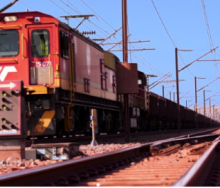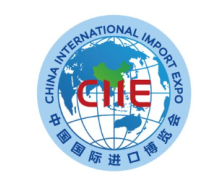South Africa lags behind the latest artificial intelligence (AI) technology used for accurate real-time cargo tracking, compromising the country’s perceived position as a potential market leader in the context of the African Continental Free Trade Area (AfCFTA).
According to Stephen Segal, national divisional director of clearing and forwarding at Value Logistics, the “Manifest” conference held in Las Vegas in early February showed how old-school container visibility methods aren’t worth the gamble anymore.
“In terms of the digital world, AI and the way things are supposed to operate, we’re far behind,” he said.
The event, which focused on the “future of supply chain and logistics,” effectively demonstrated how application programming interfacing, or APIs, can be used to synchronise all elements attached to cargo tracking, Segal said.
“I saw how containers can be tracked from the minute the order is placed until the moment it’s delivered to the customer.”
Using the Port of Los Angeles as an example, he said using cyber-secure means in the background of cargo movement can ring-fence sensitive supply chain information while simultaneously making everything immediately visible for the convenience of agents and shippers.
In comparison, South African systems are often disparate and disconnected, relying on email communication for movement updates and making it difficult to track cargo accurately in real time.
Said Segal: “At Los Angeles, there are maybe 15 different operators inside that port.
“Part of that operation is about getting containers delivered into the port, moved from trucks into the stacking area and then onto ships, all by different operators, each one having their own IT systems and not wanting to share information because they’re scared of hacking.
“But all information still has to be gathered together on one platform, and APIs can do all of that.”
In simpler terms, he explained that a container can be tracked by entering its number into an app to see exactly where it is and who’s handling it at any given time.
Segal said Manifest showed how easily this can be done through a very effective one-on-one exercise at the conference itself, using an app to put attendees in direct touch with one another once they had completed registration.
By addressing human concerns about online security at a time when cyber breaches tend to wreak havoc in global logistics, Manifest struck a chord on behalf of AI interventions, Segal said.
“Everyone is scared that people will lose their jobs, but it’s not like that.
“I saw a different version of how AI can be applied to prevent human error by making staff more efficient.
“Say, for example, you’re working on a quote, using AI in the background can be used to flag errors, show what’s missing and propose a variety of options to make the whole process of freight forwarding more progressive.
By not using the latest innovations to prevent disconnects in the system, eliminating human error and making everything faster by being fed with digital information automatically instead of fetching it, South Africa is missing out on getting a freight-forwarding front foot position in the burgeoning AcFTA market, Segal said.












